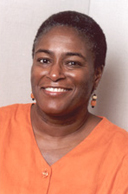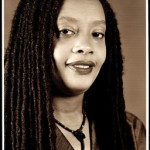BIO Conference Preview: A Conversation between Sonja Williams and Valerie Boyd
Too many of the compelling, varied and inspiring life stories of people of color have been invisible to a broader audience. Therefore, this BIO conference will feature the panel, “The Rewards and Challenges of Writing Lives of Color.” Moderated by Sonja Williams, author of a forthcoming biography Word Warrior: Richard Durham, Radio, and Freedom, this panel features authors Valerie Boyd, Alfred J. López and Donald Spivey. Williams spoke to Valerie Boyd about the complexities of researching, and in her case, rescuing black women from the shadows.

Sonja Williams
Sonja Williams: All of your book projects have focused on the lives of black women, including your award-winning biography of writer Zora Neale Hurston, your curating of writer Alice Walker’s personal journals, and your plans to examine the lives of black women in Hollywood. Why have your pursued this particular focus and what have you gotten out of this writing path?

Valerie Boyd
Valerie Boyd: It’s a natural draw for me as a black woman. It might have started out as a model for the kind of life I’d like to live by exploring some of my own “sheroes,” as scholar and former Spelman College President Johnnetta Cole would say, black women whose lives have influenced not just me but America itself. Black women are often undervalued as intellectuals, artists and thinkers, and I think it’s important to articulate their lives, making sure that those women—and I—have a voice in national and international conversations. We need to give black women the same kind of respectful, fully realized biographical treatment as we give the dead white men.
I’m especially interested in black women who’ve changed the world. As a black woman myself, I bring a kind of empathy and shared experience to my research and writing. Ideally, this allows me to write about these women in ways that I hope will help readers to occupy their lives for a bit, to experience what it was like to live inside these women’s skin, to get to know them from the inside out.
SW: What unexpected gems did you come across while conducting the research for Hurston’s biography, Wrapped in Rainbows, and how did those gems pay off during the writing process?
VB: Unexpected gems are what you hope for as a biographer. I remember little details I found while working on the Hurston biography. Howard University has some good Hurston [archival] papers and a small, black leather, three-ring-bound notebook where Hurston made small notes to herself, including her grocery lists—evidence of what she ate and what she spent her money on. This was during the early 1930s, the Depression era, and she had limited funds. So she was always buying fish and vegetables, and she’d always, always allow herself 25 cents to buy a book. Now that told me something about who Hurston was and what her priorities were. These kinds of glimpses into her internal life were invaluable.
SW: Were there any major challenges you’ve had to overcome either during the research or the writing process?
VB: The biggest challenge for me is just the danger of getting seduced by the research. The tendency to stay in the library and research can get really good to you. You could research for 20 years and never write anything. While conducting research on Hurston, I got to the point where I could predict her response. During the writing process, you might need to pick up details like what the weather was like on a particular day, but once you’re at the point where you have a critical mass of material, then you can really write. But the danger is that the research is so engaging that you want to bury yourself in that.
SW: From your vantage point, why is a panel about the joys and pain of writing biographies about people of color important?
VB: I think it’s important for writers to embrace the idea of writing about black lives. You know the current “Black Lives Matter” campaign? Well, black lives of the past matter just as they matter in the present day. It’s just a different twist, examining the ways that people lived despite the repressive conditions of the past.
SW: Your colleagues on the panel have written fairly diverse biographies. Donald Spivey examined twentieth-century Negro baseball great Leroy “Satchel” Paige, Alfred López took on nineteenth-century Cuban legend José Martí and my bio explored the life of twentieth-century media writer Richard Durham. What issues do you think may come up for discussion in this group of biographers?
VB: Sometimes I get asked about the whole “warts and all” portrayal. What happens if you find [negative] stuff about your subject and you try to hide it to protect her or his reputation? My approach is that you write about it all; as biographers, our job is to contextualize and explain—not to hide any of what we find.
We may also want to talk about the availability of archival material for certain people. I have been interested in the life of entertainer Ethel Waters, for example. She and Hurston were good friends. But I was limited in how much I could explore about her life because, as a non-literary artist, she simply didn’t write as much as someone like Hurston did. Many contemporary artists and scholars send texts the way Hurston and Langston Hughes once sent postcards to each other. So will our future biographers end up in legal battles to get access to our emails and texts? I think it’s really important for biographers to have access to the inner lives of our subjects, so it would be interesting to discuss the different ways—past, present and future—that biographers can access those interior lives.